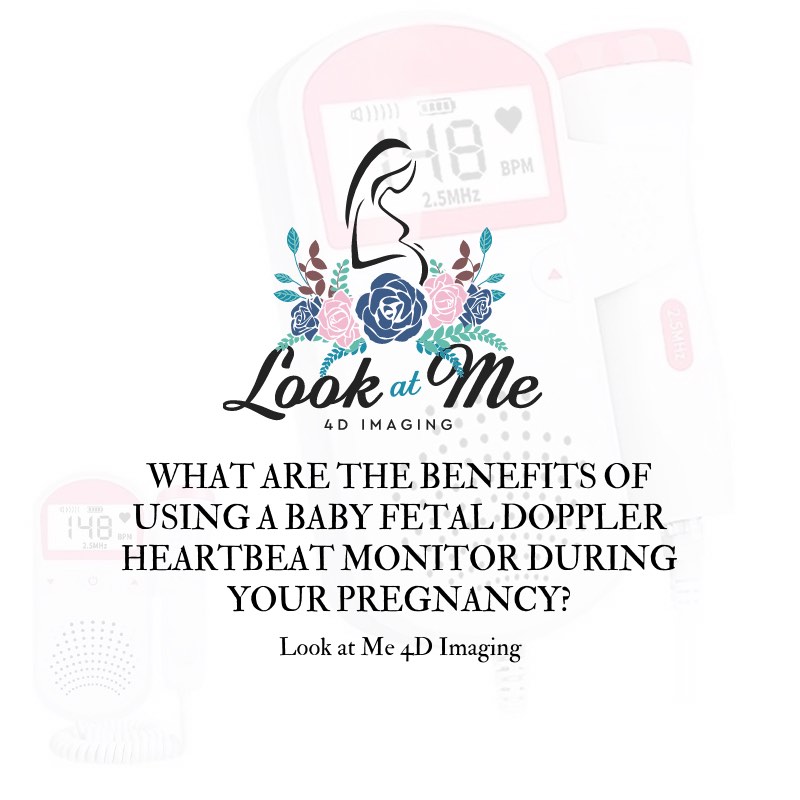The joy of being pregnant comes with a host of exciting milestones. From the first sonogram to feeling your baby's kicks, every step of pregnancy is a journey of discovery. One of the most special moments for most moms-to-be is hearing their baby's heartbeat for the first time. Thankfully, listening to the baby's heartbeat has become an easy and common practice, thanks to advancements in medical technology. The fetal Doppler is a non-invasive tool that allows expectant moms to listen to their baby's heartbeat from the comfort of their own home. In this blog, we'll discuss the fetal Doppler and how it's used to detect a baby's heartbeat during early pregnancy.

What is the fetal Doppler?
A fetal Doppler is a handheld ultrasound device that detects the baby's heartbeat. The device uses ultrasound waves to bounce off moving objects, such as the baby's heart, creating sounds that the human ear can hear. The sound waves are then amplified by the Doppler device and outputted through a speaker or headphones for listening.
The fetal Doppler is a simple and painless procedure that allows healthcare providers to monitor fetal heart rate, assess fetal well-being, and detect any abnormalities during pregnancy. Usually, expectant mothers get their first exposure to Doppler technology during their prenatal appointments, where they have their first ultrasound.
How is fetal Doppler used early in pregnancy?
Most women first hear their baby's heartbeat during a routine checkup that uses the fetal Doppler early in their pregnancy. As per the American Pregnancy Association, fetal Doppler monitoring is recommended at 10-12 weeks during pregnancy, when the baby's heartbeat becomes audible with the use of a Doppler device. During the first trimester, the baby's heart beats at a rate of around 100 beats per minute (BPM) and grows stronger and faster as the pregnancy progresses.
Healthcare providers place the Doppler device on the pregnant woman's abdomen, where they can hear a steady "lub-dub" sound. The prenatal healthcare provider monitors the baby's heart rate and rhythm to make sure that the baby is growing and developing normally.
How safe is fetal Doppler technology?
As a non-invasive diagnostic tool, fetal Doppler technology is relatively safe for both the mother and the baby. According to the American Institute of Ultrasound in Medicine, there is no evidence to suggest that fetal Dopplers pose any danger to the fetus or the pregnant mother. However, there are a few things to keep in mind when using a Doppler at home, such as avoiding unnecessary exposure to ultrasound waves and not using the device as a substitute for professional medical care.
It's important that expectant mothers do not use fetal Dopplers at home as a substitute for prenatal care. Ultrasound exams during pregnancy are not only used to listen to the heartbeat but also to monitor the baby's growth, check the placenta, and measure amniotic fluid. Prenatal care is crucial for a healthy pregnancy and should not be replaced with the use of at-home Doppler devices.
Benefits of using fetal Doppler during early pregnancy
Using a fetal Doppler early in pregnancy has a range of benefits, including:
1. Early detection of fetal heart rate abnormalities: One of the primary benefits of using a Doppler device early in pregnancy is that it allows healthcare providers to detect early fetal heart rate abnormalities. Identifying any issues early on puts moms-to-be in a better position to make informed decisions about their pregnancy.
2. Peace of mind: Hearing your baby's heartbeat through a Doppler device can be incredibly reassuring for expectant mothers. Dopplers can be especially helpful for women who have previously experienced a pregnancy loss, helping to alleviate some of the anxiety that can come with pregnancy.
3. Bonding with your baby: Hearing your baby's heartbeat for the first time can be an emotional and bonding experience for both the mother and father. Fetal Dopplers offer expectant parents the opportunity to share this experience at home.
In summary
A fetal Doppler is an essential tool to monitor the baby's heartbeat during pregnancy. Fetal Doppler technology is a safe and non-invasive procedure that allows healthcare providers to monitor fetal health and detect any abnormalities early on. Additionally, the device provides expectant parents with a bond-building and comforting experience, allowing them to hear their baby's heartbeat in the comfort of their own homes. However, it's vital to remind expectant mothers that fetal Doppler technology should not serve as a replacement for professional medical care. If you're pregnant and considering using a fetal Doppler, be sure to discuss it with your prenatal care provider.